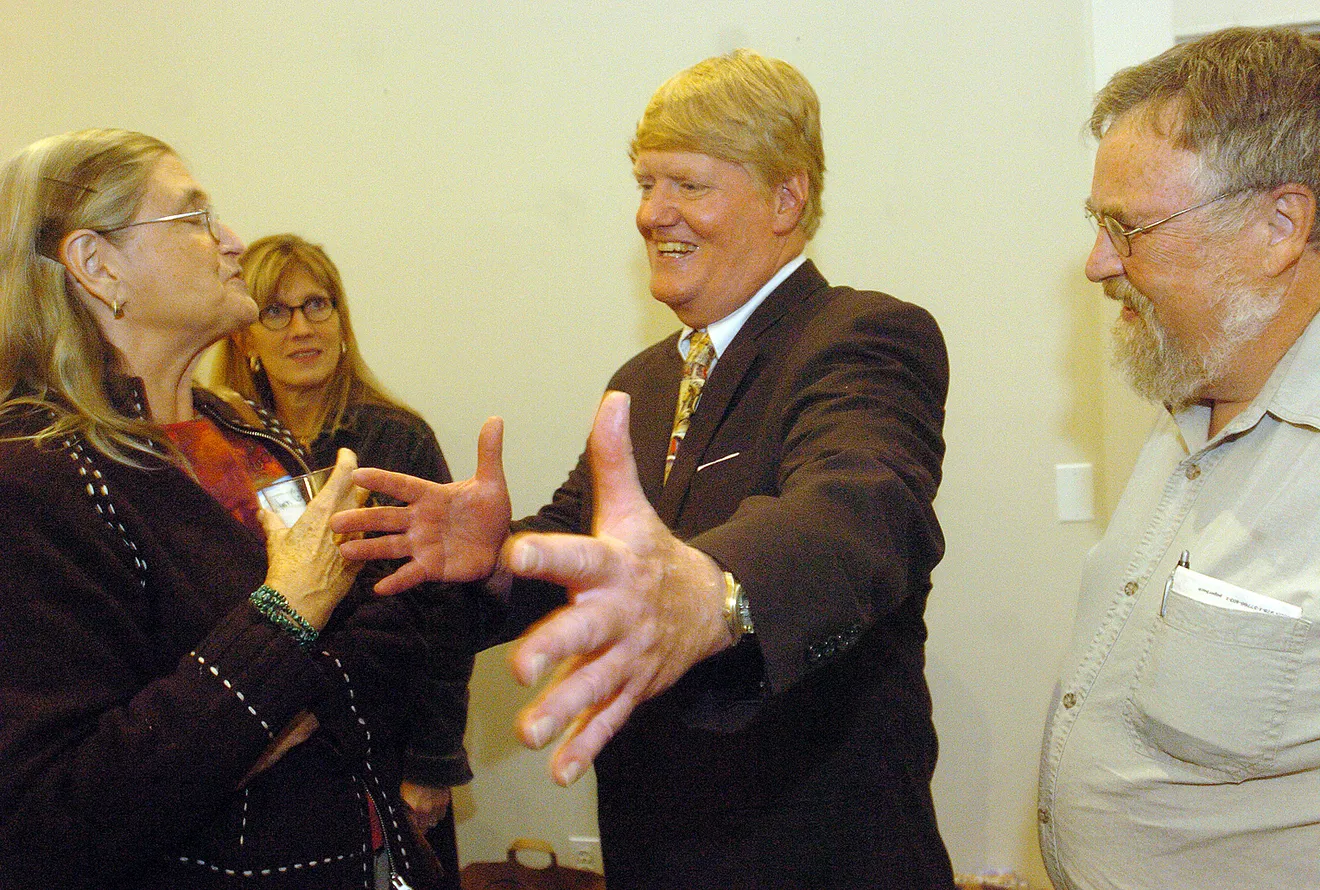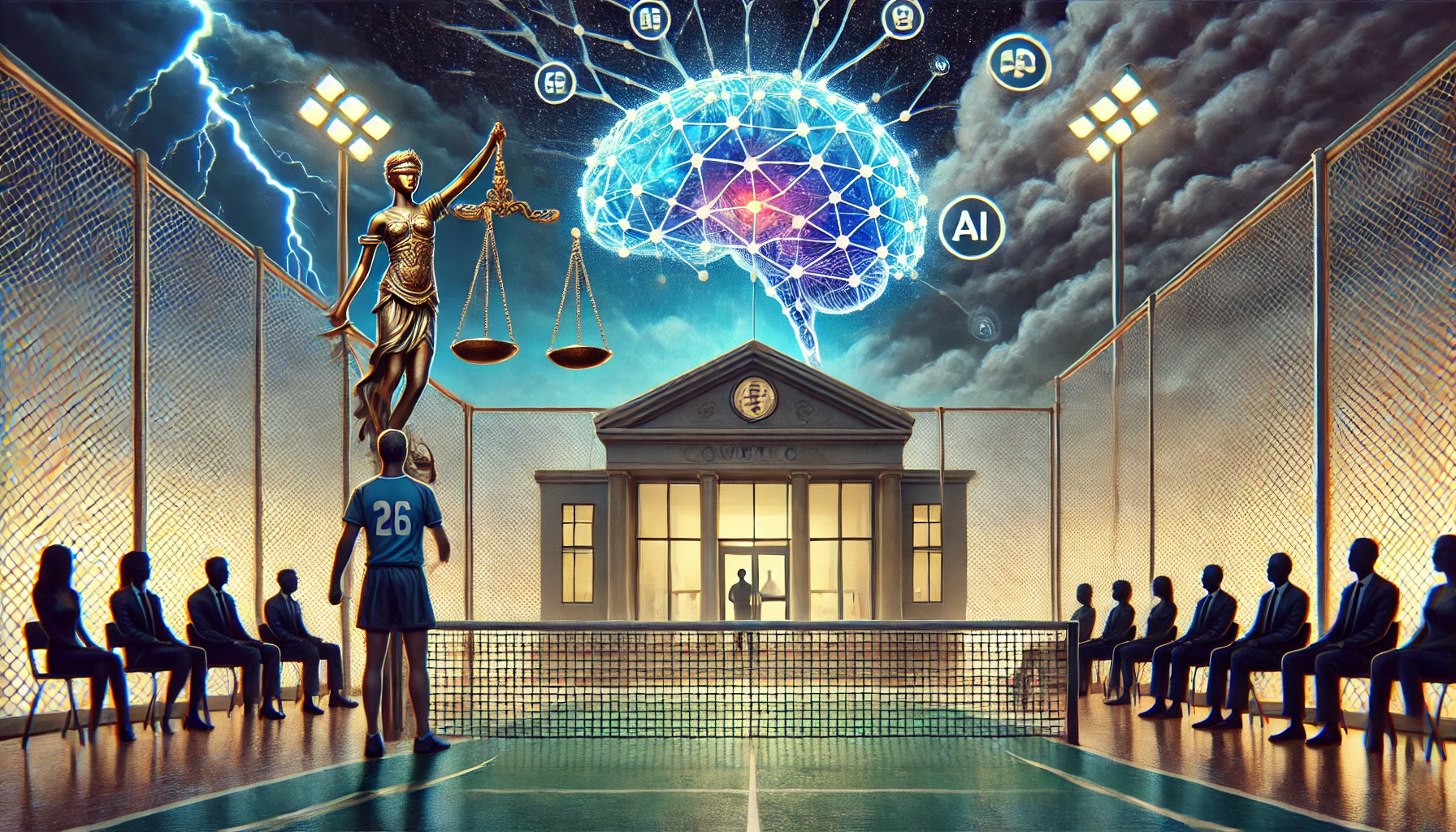A personal story about school discipline, institutional incentives, and why fairness still matters—even before the algorithms arrive.
With mass firings and even deportations making headlines, the question of what due process means in America today feels more urgent than ever. When is it a constitutional right—and when merely a procedural courtesy? What should it require, and in which contexts—public, private, or somewhere in between?
Traditionally, due process has rested on one core assumption: that human beings are the ones making the decisions—at every step. But what happens when AI enters the picture? As artificial intelligence systems are increasingly used to support or even supplant human judgment, how will our understanding of fairness, accountability, and process evolve?
Let’s explore those questions through the lens of a far less momentous—but personally devastating—event: my abrupt dismissal as a school tennis coach.
I. No Warning. No Hearing. No Process
I was recently fired from coaching our high school and middle school tennis teams. The school and teams that all of my three kids go to and play on. The school at which my wife teaches beyond full time. Midseason. No warning. Just…gone.
The trigger? A complaint filed by an opposing team after a match in January. It was backed by testimonials from two of their high school girls, alleging that I “terrorized” them—based solely on my words and manner. I was never given a hearing. My response—detailing how this allegation was retaliation to my calling for the assignment of line judges for matches involving the same girls, due to ongoing concerns about fair play—has not been refuted or addressed in any form.
II. Due Process Guarantees Fair Procedures Before The Government Can Deprive a Person of Life, Liberty, or Property
Due process is a constitutional promise, enshrined in the Fifth and Fourteenth Amendments, that the government can’t take away your life, liberty, or property without following fair procedures. At its core, it’s about respect—respect for people’s rights, for the truth, and for the idea that outcomes should be based on something more than fear, favoritism, or institutional risk management.
Legally, due process comes in two forms:
- Procedural due process focusing on how the law is applied. It requires notice, a meaningful opportunity to be heard, and a neutral decision-maker—basic guardrails to prevent arbitrary or unfair treatment.
- Substantive due process deals with what the government is allowed to do. Even if proper procedures are followed, there are certain fundamental rights—privacy, family, bodily autonomy—that the government can’t infringe without a compelling justification.
III. Why A Male Tennis Coach at a Charter School is Not A “Person”
A. Due process optional: The charter school bargain
Because I coached at a public charter school, my situation fell into one of those constitutional gray zones that are both infuriating and increasingly common. The school is publicly funded—relying on taxpayer dollars and wielding state-sanctioned authority over students. But it is managed by a private entity, and that distinction makes all the difference when it came to employee rights.1
Charter schools operate under a legal fiction: that they’re public enough to educate kids on the government’s dime, but private enough to evade constitutional scrutiny—at least when it comes to how they treat their staff. That fiction works out well for school administrators, who are held to test score metrics, not fairness metrics.
As a non-tenured coach, I didn’t check enough legal boxes to trigger constitutional due process protections. No notice. No hearing. No neutral review. Just silence—wrapped in boilerplate HR language and a thin veil of plausible deniability.
This is the unspoken bargain in many charter school models: retain autonomy, meet performance targets, and you’ll rarely be questioned about how you treat your employees. It’s a system designed for efficiency and optics, not equity or accountability.
[cont’d ↗]

Shout out to my own high school tennis coach, George Mechem. You were right Mr. Meech! – Jim Ko, L.H.S., Class of ’92.


Self-schedule a free 20-min. video or phone consult with Jim W. Ko of Ko IP and AI Law PLLC here.
B. Presumed guilty: The quiet vulnerability of male teachers
For all the institutional advantages men may enjoy in society at large, the inverse often applies when male educators become the target of complaints by female students. You cannot teach without discipline. And you cannot discipline without the risk of backlash. Once a complaint is filed—especially one involving emotional language—it can take on a life of its own. That risk is magnified exponentially when gender dynamics are in play.
Too often, male teachers and coaches are treated not as presumed innocent, but as institutional liabilities to be swept under the rug. Reassignment or termination become preemptive acts of administrative self-preservation—not a last resort. In some cases, that may be a necessary evil, particularly when serious concerns exist about an educator’s ability to maintain a safe and respectful learning environment.
In mine, there were no allegations of physical contact. No inappropriate language directed at any student. Just tone and presence. Yet it was easier for the administration to sever ties than to confront the facts.
Once the “adolescent girls versus adult male coach” narrative took root—even when raised by the “responsible” adults of the opposing team, who appeared both to be leveraging gender optics while deflecting attention from its own repeated misconduct2—I never stood a chance. Not even with an administration that had once assured me it had my back—until some combination of institutional and individual self-preservation proved more important.
Without any process to anchor the decision in evidence, the accusation itself became the outcome.
C. School administrators face the same risks…
In some respects, administrators face greater risks than teachers or coaches—particularly when it comes to vicarious liability. If a teacher engages in misconduct and the administration is perceived to have ignored warning signs, it’s the administrators who may be held accountable for enabling, covering up, or failing to act. That pressure is real, and it has only grown as legal standards and public scrutiny around institutional accountability have intensified.
Consider the recent case in my local Chandler Unified School District, where multiple administrators were placed under investigation for allegedly failing to respond appropriately to prior complaints against a teacher.3 These are serious, career-altering accusations and a cautionary tale for school administrators, in particular in our area. And while the facts are still emerging, the initial consequences for those administrators appear—at least based on public reporting of the public hearings held for this case—disproportionate to their level of involvement or culpability.
D. …but at least they have more due process-type rights than teachers?
Nonetheless, at least the administrators in that case were given what every accused party should receive: due process. They were entitled to a hearing before disciplinary action was taken. And, however unfair the preliminary outcomes may seem, they further benefit from an internal mechanism to appeal it.
It’s possible that administrators in charter schools like mine are subject to the same “at-will” employment terms I faced as a coach. But I suspect that, in practice—as in most organizations—due process-type protections tend to increase as you move up the ranks. Informal norms, internal policies, and contractual arrangements often confer more rights on those with more institutional clout.
To the extent that such protections don’t exist for administrators, their incentive to jettison lower-level employees to protect themselves only grows stronger.
IV. A Good Faith Safe Harbor: A Simple Guardrail Against Arbitrary Termination
What happened to me shouldn’t happen to anyone—student, teacher, or administrator. Allegations of serious misconduct deserve to be taken seriously. But seriousness is not the same as railroading. And punishment without process—especially when based on subjective claims like “terrorization”—undermines trust on all sides.
We need a better framework. One that protects students from harm without abandoning the rights of educators to fairness and context. One that doesn’t force administrators into reactive decisions based solely on risk optics. One that acknowledges the complexity of school environments—where firm language, emotional responses, and human misreadings are inevitable.
That framework might start with something simple but powerful: a good faith safe harbor.
Under this model, when an educator is accused of verbal, emotional, or other non-physical misconduct, the school must ask a threshold question: Do the facts support the possibility that the conduct, however upsetting to some, was carried out in good faith—that is, as part of legitimate instruction, coaching, discipline, or student management?
If the answer is no—if the facts clearly show malice, retaliation, or abuse—then swift termination is justified.
But if the answer is yes—if there’s a plausible, professional justification for the conduct—then immediate termination should not be an option. At that point, an internal hearing becomes mandatory, even if it doesn’t involve the student complainants directly. The educator deserves a chance to present context, evidence, and explanation to and at a minimum have a meaningful conversation with the administrators empowered to make termination decisions. And perhaps, in some cases, with a semi-independent or independent body, prior to and separate from involving the courts. With the opportunity and expectation that the conduct of concern might improve in the future.
This isn’t just a privilege. It’s process. It’s basic fairness, which it is imperative that our schools model for our kids if we expect them to grow up and exhibit the same.
Such a safeguard would serve everyone:
- Students, who are entitled to be heard—but not weaponized.
- Administrators, who would benefit from a clear, principled protocol rather than reactive guesswork.
- Teachers and coaches, who deserve at least the same baseline respect for their professional judgment that administrators receive.
- Families and communities, who deserve to know that staff decisions are being made with both integrity and transparency.
This isn’t some radical call to immunize bad actors. It’s a commonsense solution rooted in employment law and constitutional values—what courts might call minimal procedural protections given the stakes involved. And it’s what all individuals who dedicate their lives to the education of youth who operate in good faith deserve.
V. Trust, But Verify: Due Process as a Democratic Imperative
Due process isn’t just about contracts or legal formalities. It’s a bulwark against being railroaded by a system designed—first and foremost—to protect itself. It’s about fairness, transparency, and the right to challenge a decision before it becomes permanent and career-ending.
High school tennis is a living embodiment of these issues. Tennis is often described as a “gentleman’s” sport. At the high school level, players call their own lines. There are no referees. And somehow—surprisingly often—the system works. Most players act in good faith. Most matches proceed without controversy.
And yet, there’s a reason the pros don’t call their own lines.
There comes a point where the stakes are too high, the competition too fierce, or the tensions too elevated to rely solely on self-regulation. That’s why, even in high school tennis, there’s a backstop: when disputes arise, coaches from each team are called in to act as line judges. It’s an unwritten rule, but a deeply necessary one—because trust, while foundational, is not infallible.
“Trust but verify” isn’t just good tennis policy. It’s good governance. This—combined with a system of independent, checks and balances that mitgate against bias and self-interest—is the essence of due process.
School administrators, like tennis players, should be trusted to act in good faith. They need discretion and flexibility—especially when managing sensitive personnel issues. But they also need guardrails. Because the moment a single accusation—or even the mere perception of one—can end a career without a hearing or a formal finding, the game is no longer fair. The field is no longer level.
One of the essential purposes of public education is to prepare students to engage in a constitutional democracy. But how can schools model democratic principles if they abandon due process within their own walls?
My firing wasn’t just about a coaching job. It was about a system that forgot one of its most basic civic lessons: even referees need referees sometimes. Access to an independent judiciary will always be a necessity—not only a constitutional one but a practical one. But the goal should never be to force every dispute into court. Every institution—especially those entrusted with shaping future citizens—should seek to internalize due process principles so that fair, transparent, and meaningful resolutions can occur before a lawsuit is ever filed.
© 2025 Ko IP & AI Law PLLC
Coming in Part II: What happens when it’s not a human making the call—but an algorithm trained to detect “risk”? If due process principles are already on shaky ground, AI may be the tool that finishes the job. Now available here.
And in Part III: A Better Vision For AI-Assisted Due Process For All, discover how role-segregated AI agents can revolutionize due process without replacing human judgment. Now available here.
- For a thoughtful, in-depth exploration of these issues, see Jennifer Chen, California Charter School Teachers: Flexibility in the Classroom, Vulnerability as an Employee, 67 Hastings L. J. 1733 (2016) (“[C]harter schools must be able to swiftly remove teachers who cannot meet the needs of their students due to their incompetence, unprofessionalism, or other faults. But at the same time, as professional educators and individuals as invested in their students as their own careers, charter school teachers should not be subject to the unfettered whim of their administrators.”). ↩︎
- This blog is not the forum for fully litigating the detailed evidence I submitted in response to the complaint. That’s what hearings—or at the very least, direct conversations—are for. But this is beyond dispute—the entirety of the administrative explanation for my termination, public or private, was that I was expected to “rise above.” No specifics. No process. Just silence, packaged as policy. ↩︎
- Alexandra Hardle & Elena Santa Cruz, Chandler Unified officials face discipline over claims of inappropriate touching, AZCentral (Mar. 24, 2005), available here. ↩︎

Leave a Reply